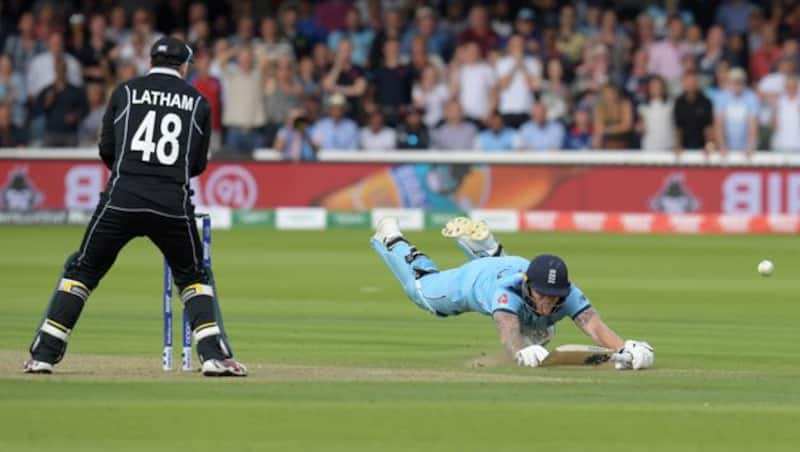
Cricket Country Staff
Editorial team of CricketCountry.
Written by Cricket Country Staff
Published: Jul 15, 2019, 12:20 PM (IST)
Edited: Jul 15, 2019, 12:21 PM (IST)

While there is a general consensus on the final of ICC Cricket World Cup 2019 between England and New Zealand at Lord’s on Sunday being the greatest World Cup match ever, the manner in which England became World Champions have left opinions divided.
While the boundaries count-back rule after both teams were tied in regulation time and then the Super-Over, have come under heavy criticism by the cricket fraternity, an overthrow that cost New Zealand six runs in the third fourth delivery of the final over that helped in England secure a tie, is also being looked at as a big umpiring blunder. ALSO READ: ‘That is how it inspires a new generation of cricketers’- Reactions after epic Cricket World Cup 2019 finale
England were awarded six runs after the throw from Martin Guptill from deep midwicket hit Ben Stokes’ bat as he was diving to complete the second run and the ball eventually rolled over the boundary line at deep fine leg. As per the ICC Law 19.8, pertaining to “Overthrow or wilful act of fielder”, that second run should not have been counted, meaning England would have scored five runs off that particular delivery, making the equation 4 runs from two balls. ALSO READ: Such a shame that the ball hit Ben Stokes’ bat: Kane Williamson
The law states: “If the boundary results from an overthrow or from the wilful act of a fielder, the runs scored shall be any runs for penalties awarded to either side, and the allowance for the boundary, and the runs completed by the batsmen, together with the run in progress if they had already crossed at the instant of the throw or act.” ALSO READ: Ben Stokes ‘lost for words’, Jofra Archer cherishes ‘biggest thing’ in his life as England lift maiden World Cup title
The moment the ball hit Stokes’ bat, Stokes second run should have been invalid as video evidence from the match show that Stokes had not completed the run, when the overthrow occurred. While the New Zealand fielders were in a state of confusion, no one protested on giving England six runs.
Umpire Kumar Dharmasena, who was at the bowling end during the final over had a discussion with Marais Erasmus, the square leg umpire, and they decided to award six runs, without actually considering the above stated law. Thus, robbing New Zealand of one run and subsequently England tied the match to take it to Super Over, where once again the ICC’s law in a situation of a tie in Super Over, boundaries scored in regulation time took precedence over what happened in Super Over and even the wickets.
This website uses cookies so that we can provide you with the best user experience possible. Cookie information is stored in your browser and performs functions such as recognising you when you return to our website and helping our team to understand which sections of the website you find most interesting and useful.
Strictly Necessary Cookie should be enabled at all times so that we can save your preferences for cookie settings.
If you disable this cookie, we will not be able to save your preferences. This means that every time you visit this website you will need to enable or disable cookies again.
